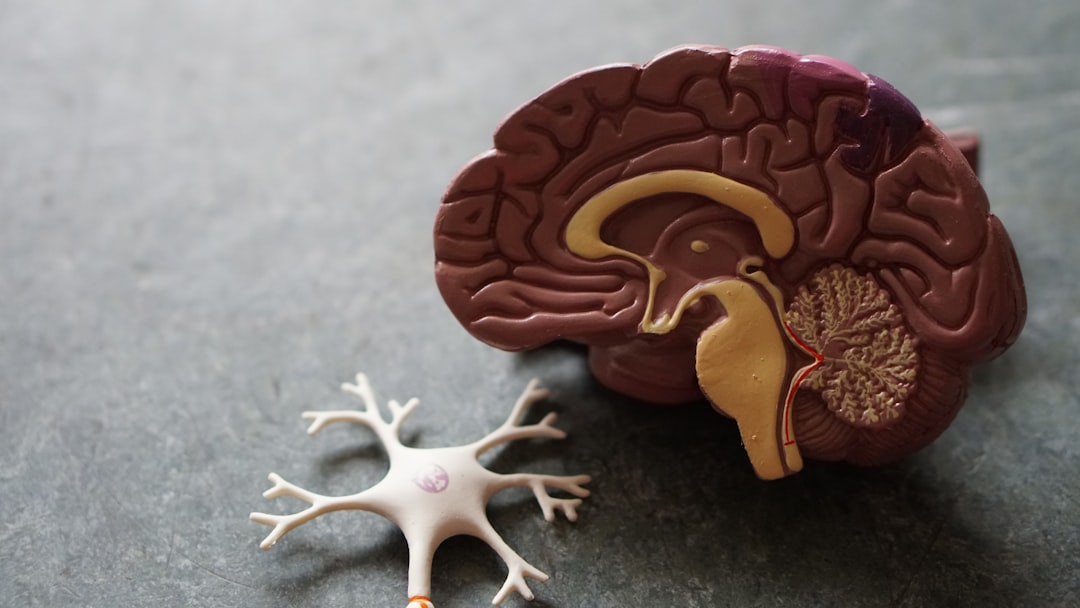Attention Deficit Hyperactivity Disorder (ADHD) is a neurodevelopmental disorder that affects both children and adults. It is characterized by symptoms such as inattention, hyperactivity, and impulsivity. ADHD can have a significant impact on various aspects of an individual’s life, including their relationships, work, and overall well-being. When ADHD is present in individuals with the ENFP personality type, it can present unique challenges and strengths that are important to understand and address.
ENFP personalities are known for their creativity, enthusiasm, and passion for new ideas and experiences. They are often described as energetic, spontaneous, and empathetic individuals who thrive on connecting with others and exploring new possibilities. However, ENFPs can also struggle with maintaining focus, following through on tasks, and managing their time effectively. When ADHD is present in an ENFP, these challenges can be amplified, making it important to recognize the intersection of ADHD and personality type in order to provide effective support and strategies for managing symptoms.
Key Takeaways
- ENFP personalities are known for their creativity, enthusiasm, and adaptability, but they may also struggle with attention deficit hyperactivity disorder (ADHD).
- Characteristics of ENFP personalities include being outgoing, spontaneous, and empathetic, but they may also exhibit symptoms of ADHD such as difficulty focusing, impulsivity, and restlessness.
- Understanding the impact of ADHD on ENFP personalities can help in recognizing the unique challenges they face, such as feeling overwhelmed by their many interests and struggling to follow through on tasks.
- ENFP personalities with ADHD may experience challenges in staying organized and managing time, but they also possess strengths such as creativity, resilience, and the ability to think outside the box.
- Strategies for managing ADHD in ENFP personalities may include creating a structured routine, breaking tasks into smaller steps, seeking professional help, and finding support from friends, family, or support groups.
Characteristics of ENFP Personalities
ENFPs are often described as free-spirited individuals who are driven by their values and a desire to make a positive impact on the world. They are known for their ability to see the big picture, think outside the box, and inspire others with their enthusiasm and creativity. ENFPs are also highly empathetic and sensitive to the needs of others, making them natural caregivers and advocates for social justice.
On the flip side, ENFPs can struggle with maintaining focus on routine tasks, following through on commitments, and managing their time effectively. They may become easily bored with repetitive or mundane activities and may procrastinate on important tasks. Additionally, ENFPs may have difficulty with organization and may struggle to prioritize their responsibilities. These characteristics can be further exacerbated when ADHD is present, leading to challenges in academic, professional, and personal settings.
Understanding ADHD and its Impact on ENFP Personalities
ADHD is a complex neurodevelopmental disorder that can impact individuals in various ways. Inattention, hyperactivity, and impulsivity are the hallmark symptoms of ADHD, but these symptoms can manifest differently in each individual. When ADHD is present in an ENFP personality, it can lead to difficulties in maintaining focus on tasks that do not align with their values or interests. This can result in a pattern of starting projects with enthusiasm but struggling to follow through to completion.
Hyperactivity and impulsivity can also present unique challenges for ENFPs with ADHD. While ENFPs are known for their energetic and spontaneous nature, ADHD-related hyperactivity can lead to restlessness and difficulty sitting still for extended periods of time. Impulsivity can also manifest as making quick decisions without fully considering the consequences, which can impact relationships and decision-making in various areas of life.
It’s important to recognize that ADHD is not a character flaw or a lack of willpower; it is a neurobiological condition that impacts the brain’s executive functioning. Understanding the intersection of ADHD and the ENFP personality type can help individuals and their support systems develop targeted strategies for managing symptoms and maximizing strengths.
Challenges and Strengths of ENFP Personalities with ADHD
| Challenges | Strengths |
|---|---|
| Easily distracted | Highly creative |
| Difficulty focusing | Empathetic and understanding |
| Impulsivity | Enthusiastic and energetic |
| Procrastination | Adaptable and open-minded |
| Forgetfulness | Optimistic and inspiring |
ENFPs with ADHD face a unique set of challenges that can impact their academic, professional, and personal lives. Challenges may include difficulty maintaining focus on routine tasks, following through on commitments, managing time effectively, and staying organized. These challenges can lead to feelings of frustration, overwhelm, and self-doubt as ENFPs strive to meet their goals and responsibilities.
However, it’s important to recognize that ENFPs with ADHD also possess many strengths that can be harnessed to effectively manage symptoms and thrive in various areas of life. Their creativity, passion for new ideas, and ability to connect with others can be powerful assets in developing strategies for managing ADHD symptoms. Additionally, their empathetic nature and ability to see the big picture can help them navigate challenges and advocate for their needs.
By recognizing both the challenges and strengths associated with ADHD in ENFP personalities, individuals and their support systems can work together to develop targeted strategies for managing symptoms and maximizing potential.
Strategies for Managing ADHD in ENFP Personalities
Managing ADHD symptoms in ENFP personalities requires a multifaceted approach that takes into account their unique strengths and challenges. Some strategies that may be helpful include:
1. Utilizing creativity: ENFPs can harness their creativity to develop personalized systems for managing time, tasks, and responsibilities. This may include using visual aids, color-coding, or creative brainstorming techniques to stay organized and focused.
2. Setting clear goals: Establishing clear goals and breaking them down into manageable steps can help ENFPs stay on track and maintain motivation. Setting deadlines and creating accountability systems can also be beneficial in following through on commitments.
3. Seeking variety: ENFPs thrive on variety and new experiences, so incorporating breaks and changing up tasks throughout the day can help maintain focus and prevent boredom.
4. Building a support network: Seeking support from friends, family members, or mental health professionals can provide valuable encouragement, accountability, and guidance in managing ADHD symptoms.
5. Practicing self-care: Engaging in regular exercise, mindfulness practices, and hobbies that bring joy can help manage stress and improve overall well-being.
By implementing these strategies and adapting them to fit individual needs, ENFPs with ADHD can develop effective tools for managing symptoms and achieving their goals.
Seeking Support and Resources for ENFP Personalities with ADHD

Seeking support and resources is essential for individuals with ADHD, including those with the ENFP personality type. Support may come in the form of therapy, coaching, support groups, or educational resources that provide information about ADHD and strategies for managing symptoms.
Therapy can be particularly beneficial for individuals with ADHD as it provides a safe space to explore challenges, develop coping strategies, and work through any emotional barriers that may be impacting daily functioning. Cognitive-behavioral therapy (CBT) and dialectical behavior therapy (DBT) are evidence-based approaches that can help individuals develop skills for managing impulsivity, improving focus, and regulating emotions.
Coaching is another valuable resource for individuals with ADHD as it provides personalized support in developing strategies for managing symptoms, setting goals, and improving time management skills. Coaches can work collaboratively with individuals to identify strengths and challenges related to their ADHD and develop targeted plans for success.
Support groups offer a sense of community and understanding as individuals connect with others who share similar experiences. These groups provide an opportunity to share strategies, gain encouragement, and learn from others who have navigated similar challenges.
Educational resources such as books, podcasts, online courses, and workshops can also provide valuable information about ADHD and practical strategies for managing symptoms. By seeking out these resources, individuals with the ENFP personality type can gain knowledge and tools for effectively managing their ADHD.
Conclusion and Encouragement for ENFP Personalities with ADHD
In conclusion, navigating ADHD as an individual with the ENFP personality type presents unique challenges and strengths that require targeted strategies for effective management. By understanding the intersection of ADHD and personality type, individuals and their support systems can develop personalized approaches for managing symptoms and maximizing potential.
It’s important for individuals with the ENFP personality type to recognize that they are not defined by their ADHD; rather, it is one aspect of who they are. By harnessing their creativity, passion for new ideas, empathy, and ability to connect with others, ENFPs can develop effective tools for managing symptoms and thriving in various areas of life.
Seeking support from mental health professionals, coaches, support groups, and educational resources is essential in developing a comprehensive approach to managing ADHD. By utilizing these resources and implementing targeted strategies, individuals with the ENFP personality type can navigate the challenges of ADHD while embracing their unique strengths. With determination, self-compassion, and support from others, individuals with the ENFP personality type can effectively manage their ADHD symptoms and achieve their goals.
If you’re interested in learning more about ADHD and how it relates to the ENFP personality type, you might want to check out this insightful article on ADHD testing at ADHD-testing.com. This article delves into the complexities of ADHD and provides valuable information for individuals who may be seeking a better understanding of their own cognitive processes. It’s a great resource for anyone looking to gain more insight into how ADHD can impact different personality types, including the ENFP.
FAQs
What is ADHD?
ADHD stands for Attention Deficit Hyperactivity Disorder. It is a neurodevelopmental disorder that affects both children and adults. Common symptoms include difficulty paying attention, hyperactivity, and impulsivity.
What is ENFP?
ENFP is one of the 16 personality types identified by the Myers-Briggs Type Indicator (MBTI). It stands for Extraverted, Intuitive, Feeling, and Perceiving. ENFPs are known for their creativity, enthusiasm, and empathy.
What is the relationship between ADHD and ENFP?
Some individuals with ADHD may also identify as ENFPs, as personality type is separate from ADHD. However, the combination of ADHD and being an ENFP may present unique challenges and strengths, such as high energy levels and creativity alongside difficulties with focus and organization.
What are some common traits of individuals with ADHD and ENFP personality type?
Common traits of individuals with ADHD and ENFP personality type may include creativity, spontaneity, and a strong sense of empathy. They may also struggle with maintaining focus, following through on tasks, and managing time effectively.
How can individuals with ADHD and ENFP personality type manage their challenges?
Managing challenges associated with ADHD and being an ENFP may involve strategies such as creating a structured routine, breaking tasks into smaller steps, seeking support from others, and utilizing creative outlets to channel energy and emotions. Seeking professional help from therapists or coaches specializing in ADHD can also be beneficial.














